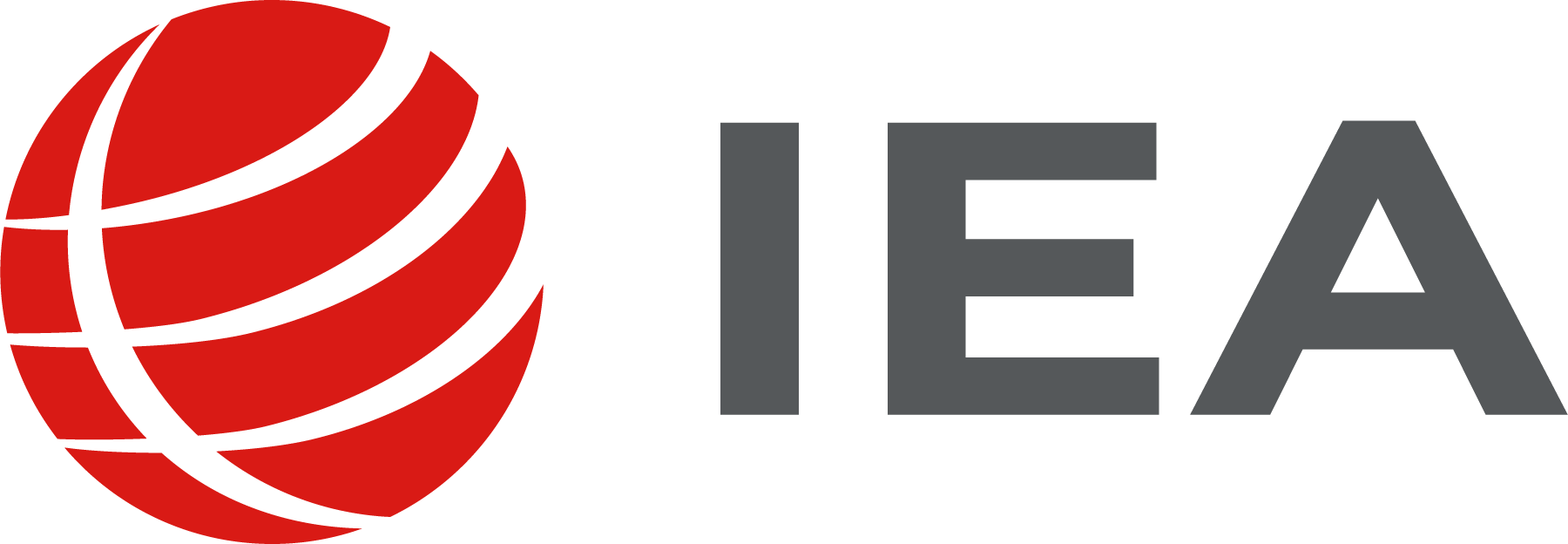During this 90-minute session, UNESCO and IEA publicly released the Responses to Educational Disruption Survey (REDS) open access International Report and International Database. Invited speakers from participating countries and educational experts discussed key findings from the report in the context of educational disruption. The full recording of the launch is now available to watch on the UNESCO YouTube channel in English, French, and Spanish.
Borhene Chakroun is the Director of the Division of Policies and Lifelong Learning Systems at UNESCO. His work focuses on global trends in reforming education and training systems for skills development in the context of the 2030 Sustainable Development Agenda. He has conducted a range of policy reviews and skills systems diagnoses and has authored various articles and books on skills development and lifelong learning. Previously he worked as a consultant for the EU, the World Bank, and other international organizations, and the European Training Foundation (ETF).
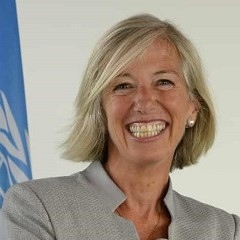
Stefania Giannini was appointed UNESCO Assistant Director-General for Education in May 2018, becoming the top UN official in the field. In this position, she provides strategic vision and leadership for UNESCO in coordinating and monitoring the implementation of the Education 2030 Agenda, encapsulated in Sustainable Development Goal 4. With an academic background in the Humanities, Ms Giannini has served as Rector of the University for Foreigners of Perugia (2004 – 2012), being one of the first and youngest women to hold this position in Italy. As Senator of the Republic of Italy (2013 – 2018) and Minister of Education, Universities and Research (2014 – 2016), she developed and implemented a structural reform of the Italian education system, centered on social inclusion and cultural awareness. Ms Giannini has also been closely involved in an advisory capacity with the European Commissioner for Research and Innovation.
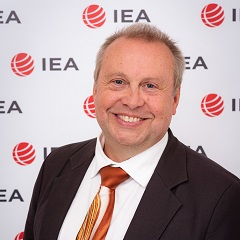
Dirk Hastedt is the Executive Director of IEA. He oversees IEA's operations, studies, and services, and drives the IEA's overall strategic vision. Moreover, he develops and maintains strong relationships with member countries, researchers, policymakers, and other key players in the education sector. Dirk also serves as co-editor in chief of the IEA-ETS Research Institute (IERI) journal 'Large-scale Assessments in Education.'
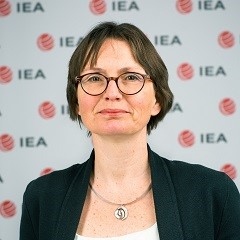
For the last 15 years, Sabine Meinck has been involved with aspects regarding sampling and statistical data analysis for nearly all contemporary international large-scale assessments in education. Her main research interest lies in the methodological challenges of complex survey data. Sabine Meinck is head of IEA’s Sampling Unit and Co-Head of IEA’s Research and Analysis Unit. She serves as associated editor of the journal “Large-scale Assessments in Education” and is a member of the PISA Technical Advisory Group.
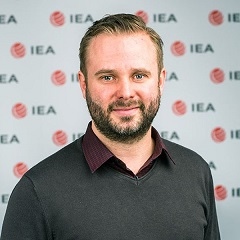
Sebastian Meyer is the REDS Co-Project Manager and the International Data Manager of the International Computer and Information Literacy Study (ICILS). Prior to that, he led all data management activities in TIMSS and PIRLS. He oversees several capacity building and research projects, focusing on survey operations procedures and data management. His work also includes consulting and training activities related to survey design, implementation, evaluation, and research.

Huong Le Thu is a Programme Specialist at the Section of Education Policy, Division of Policies and Lifelong Learning Systems at UNESCO. Since joining UNESCO in 2001, Huong has served in various professional positions at UNESCO. She has advised and supported countries in the Asia-Pacific region and contributed to the strengthening and reforming multi-stakeholder partnerships constituting the key structure for coordinating global efforts to implement SDG 4 – Education 2030 Framework for Action. Huong has also repositioned the education research and foresight program to lay the strategic foundation for UNESCO’s flagship Futures of Education initiative (2018-2019). Huong is now coordinating the thematic program on learning assessment for improved learning outcomes at UNESCO.
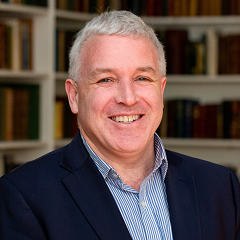
Joe O'Hara is President of the European Educational Research Association, Director of The Centre for Evaluation, Quality and Inspection, and a member of the Centre for Culturally Responsive Evaluation and Assessment at the University of Illinois at Urbana Champaign. He is a Past President of the Educational Studies Association of Ireland was a member of The Teaching Council of Ireland from 2012-2016. Joe O'Hara was a member of the Board of Directors of the Association for Personal Services Overseas (APSO) from 2002-2004 and represented Ireland on the Council of the European Educational Research Association from 2008 to 2013.
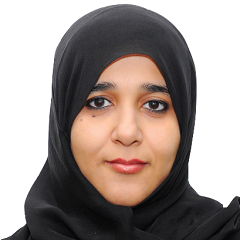
Shaikha Ali Al Zaabi is an Emirate Educator. She holds a Master’s in Educational Leadership; Shaikha has worked in international assessment for nearly 20 years. Shaikha has extensive experience as a national research coordinator (NRC), leading the United Arab Emirates team in all international assessments such as TIMSS, PIRLS, and REDS. She is also the national project manager in PISA, PISA Based Test for Schools, and TALIS. Shaikha began her professional career as a science teacher, then specialized in assessment, becoming the International Assessment Section Manager, in the National and International Assessment Division, at the Ministry of Education, UAE.
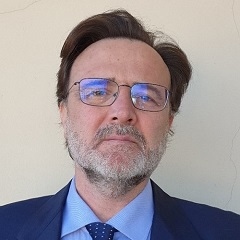
Federico Biagi is a Scientific Officer at the European Commission Joint Research Centre (JRC,) Unit B.4 Human Capital and Employment. He holds a Ph.D. in Economics from the University of British Columbia, Canada. He has experience and skills in the economics of education, labor economics, applied economics, and impact assessment.
Since 2017, Federico has been leading a team of JRC researchers conducting empirical analysis in the area of human capital and education. His work focuses on various dimensions of education and skills e.g., inequality in education; impact of COVID-19 on education; measurement of digital skills; human capital and the green transition; and transitions from education to the labor market.
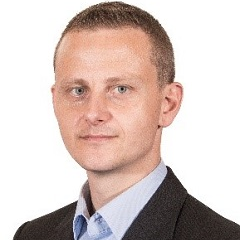
Jacob Højgaard Christensen holds a PhD in didactics and currently works as a school researcher at Aarhus University, Denmark. He is also the Vice Center Director of the Danish National Center for School Research. Jacob's expertise is within health pedagogy, food education, and wellbeing in primary to upper-secondary school. He has researched the effectiveness of teaching plans and didactic programs to develop and improve learning environments and teaching practices.
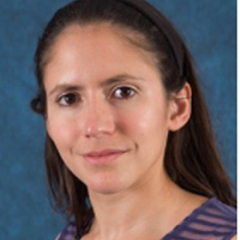
Clio Dintilhac is a Senior Program Officer on the Global Education team at the Gates Foundation. The objective of the Global Education team is to support the improvement of reading and math outcomes in primary schools in Sub-Saharan Africa and South Asia. Prior to joining the foundation in 2016, Clio was a Senior Associate at the Boston Consulting Group in Paris and Jakarta Offices and worked briefly for the Africa Governance Initiative in Ethiopia for the Ministry of industry. During her time in graduate school, Clio also performed research engagements for the Vice Presidential Unit for the Acceleration of Poverty Reduction in Indonesia as well as for the PPP Unit of the World Bank. Clio holds a Master of Public Administration in International Development of the Harvard Kennedy School of Government and a Master in Quantitative Economics and Finance from HEC Paris.
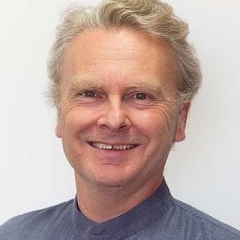
Julian Fraillon is a Senior Project Advisor to IEA. He is the international study director of the IEA International Computer and Information Literacy Study, a role he has managed across all cycles of ICILS since its inception. He has also been the manager of test development across all cycles of the IEA International Civic and Citizenship Education Study (ICCS). Before joining IEA, Julian was Director of the Assessment and Reporting Research Program – Mathematics and Science at the Australian Council for Educational Research. Over more than 20 years, he has directed a broad range of large-scale assessment projects in the areas of literacy, numeracy, civics and citizenship education (including global citizenship), ICT literacy, values education, and science.
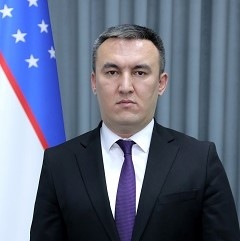
Abduvali Ismailov has been working in Uzbekistan since 2018 as the Director of the National Center for International Studies on Quality Assessment of Education. Abduvali is the National Research Coordinator of the REDS study and devotes his research work to the issues of quality assessment and provision in education. During the 17 years of his career, he has played a pivotal role in introducing IEA large-scale international studies at the national level. He also carried out projects in collaboration with the World Bank to assess students' achievements and measure the losses in the period of downtime. In addition, he has successfully implemented various international projects to introduce European standards and quality assurance in the higher education system. He authors more than 30 articles and scientific works in these fields.
